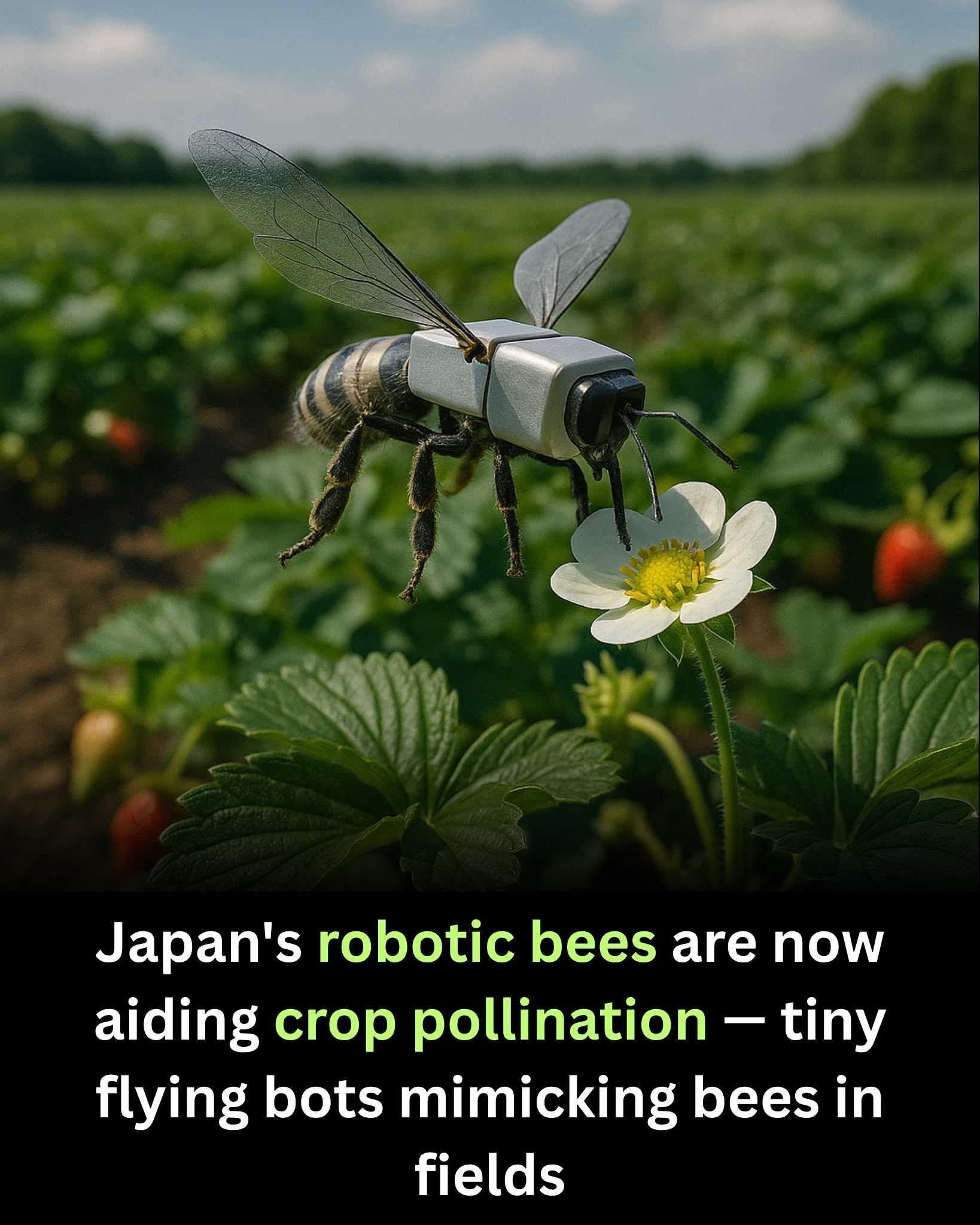Japan has developed robotic bees to help with crop pollination, addressing the global decline in bee populations. These tiny flying bots, equipped with cameras, sensors, and soft horsehair coated in a sticky gel, mimic the natural pollination process of real bees. Guided by AI, they can identify flowers, collect pollen, and transfer it efficiently between plants.
The robotic bees are being tested in greenhouses and open fields, ensuring crops like fruits and vegetables receive proper pollination even when natural bee numbers are low. Their lightweight design allows them to hover and navigate complex floral patterns without damaging delicate plants.
This innovation could safeguard global food production, especially in regions facing severe pollinator shortages. By blending robotics with nature’s design, Japan is offering a futuristic yet practical solution to one of agriculture’s biggest challenges.
#AgriTech #BeeBots #FutureFarming
The robotic bees are being tested in greenhouses and open fields, ensuring crops like fruits and vegetables receive proper pollination even when natural bee numbers are low. Their lightweight design allows them to hover and navigate complex floral patterns without damaging delicate plants.
This innovation could safeguard global food production, especially in regions facing severe pollinator shortages. By blending robotics with nature’s design, Japan is offering a futuristic yet practical solution to one of agriculture’s biggest challenges.
#AgriTech #BeeBots #FutureFarming
Japan has developed robotic bees to help with crop pollination, addressing the global decline in bee populations. These tiny flying bots, equipped with cameras, sensors, and soft horsehair coated in a sticky gel, mimic the natural pollination process of real bees. Guided by AI, they can identify flowers, collect pollen, and transfer it efficiently between plants.
The robotic bees are being tested in greenhouses and open fields, ensuring crops like fruits and vegetables receive proper pollination even when natural bee numbers are low. Their lightweight design allows them to hover and navigate complex floral patterns without damaging delicate plants.
This innovation could safeguard global food production, especially in regions facing severe pollinator shortages. By blending robotics with nature’s design, Japan is offering a futuristic yet practical solution to one of agriculture’s biggest challenges.
#AgriTech #BeeBots #FutureFarming
0 Commentaires
0 Parts
678 Vue




